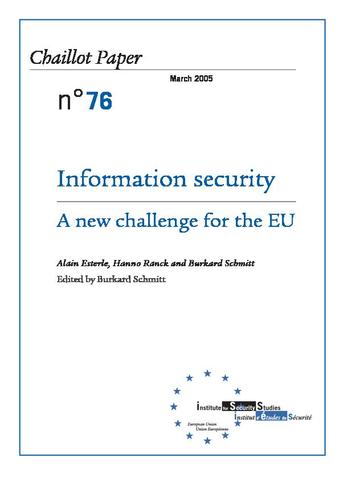You are here
Information security: a new challenge for the EU

The Internet has opened a new area of communication and information, enabling us to transfer enormous amounts of digital data for a great variety of applications within fractions of a second around the globe. It is therefore no surprise that it has become, within only a few years, the spinal column of modern societies. Citizens, research institutions, private business, NGOs, political parties and public services all increasingly depend in their daily life and work on interlinked information systems and networks. Dependency, however, creates vulnerabilities and risks. Given its enormous success, disruption of the Internet – even temporary – can cause tremendous economic and financial damage. At the same time, the Internet can be misused as an instrument for all kind of criminal activities, be they economically or politically motivated. Cybercrime and cyberterrorism have thus become serious threats to the security of our society. This Chaillot Paper explains the security risks that modern information systems incur, and the various attempts of the European Union and its member states to cope with these risks. Its has two objectives. The first is to raise awareness: among all those who use the Internet regularly for professional reasons without a full understanding of the dangers involved, but also among decision-makers who still tend to underestimate the enormous economic and political dimension of cyberspace and its related risks. The second objective is to explore options for further European cooperation. Since the Internet’s security implications are necessarily transnational, no member state can tackle them individually. There is thus an urgent need to develop a comprehensive and fully-fledged European policy on information security, both to protect our citizens at home and to increase Europe’s influence when decisions are taken on how to organise and protect the Internet as a truly global tool.